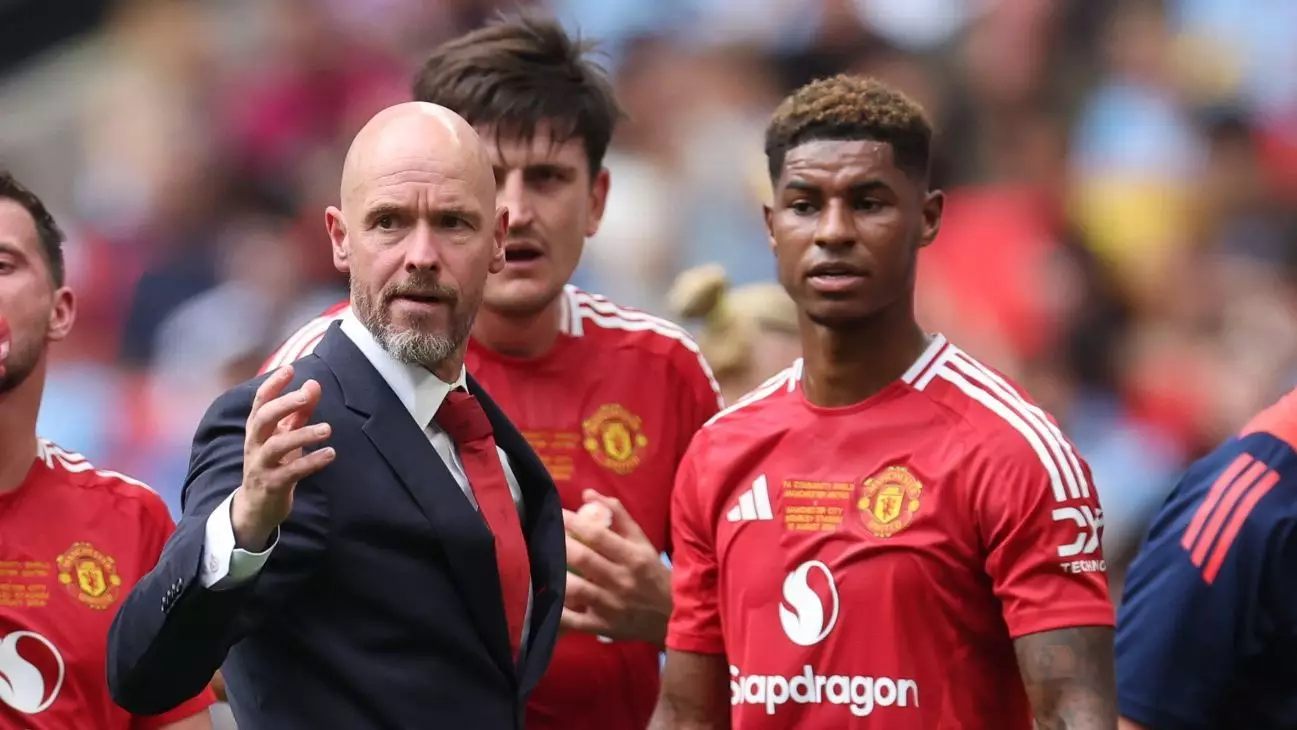In the world of football, the decisions made by a manager often invite intense scrutiny, especially when it involves a star player like Marcus Rashford. Recent events surrounding Manchester United’s clash with Crystal Palace have illustrated this point unequivocally. The result—a goalless draw that saw United squander multiple opportunities—has drawn both criticism and outlandish speculation about Erik ten Hag’s tactical choices.
Ten Hag’s decision to bench Rashford, who had just netted three goals in two matches, raised eyebrows. The assumption that it could be attributed to anything other than tactical rotation appeared unfounded, yet pundits fueled the fire of speculation. Commentators like Jamie Redknapp insinuated that there might be underlying discord between Rashford and the manager. Such claims, however baseless, reveal a tendency within sports media to seek drama where none exists.
At a club like Manchester United, scrutiny comes with the territory. The weight of expectations from fans, pundits, and the media can warp perspectives on reasonable managerial choices. Despite Rashford’s undeniable talent, Ten Hag’s decision should be viewed through the lens of strategic planning. A demanding schedule requires managers to rotate players to maintain fitness levels and avoid burnout, factors that are often overlooked by outsiders.
Against Crystal Palace, Ten Hag’s tactical reasoning seems sound. Replacing a fatigued Rashford with Alejandro Garnacho should have ensured fresh legs and creativity. However, Garnacho failed to capitalize on crucial chances—a circumstance that arguably made Ten Hag’s choice seem questionable in hindsight. Yet, hindsight is a fickle companion; had Garnacho scored, the narrative would have shifted dramatically.
The fallout from the match exemplifies the pitfalls of media intrusion into football affairs. Ten Hag responded to the speculation with frustration, pointing out the absurdity of assumptions made in ignorance. His comments highlight an essential truth in football: managerial decisions are rarely as simple as they appear. Each choice is a calculated risk, and the burden of external critique can distort perspectives on those decisions.
Especially in a league as competitive as the Premier League, managers like Ten Hag play a delicate balancing act between performance, player wellbeing, and media scrutiny. The fact that United ended the weekend in the bottom half of the table only heightened the focus on each choice made.
With a Europa League match against FC Twente on the horizon, and a Premier League match against Tottenham soon after, Ten Hag will need to address the growing concerns. He has yet to solidify his team, and fans are eager to witness a turnaround. Rashford’s position in the squad, alongside the performance of other key players, will undoubtedly be a focal point.
Ultimately, as the season unfolds, one message is clear: understanding the motives behind managerial decisions requires patience and context. For Ten Hag and his squad, patience may be essential, but so too is the efficacy of their performance in the coming matches.


Leave a Reply